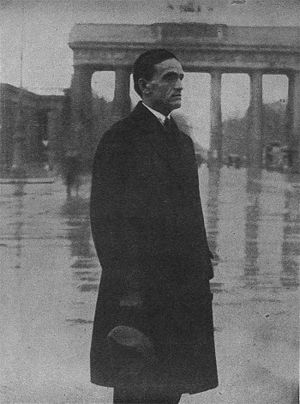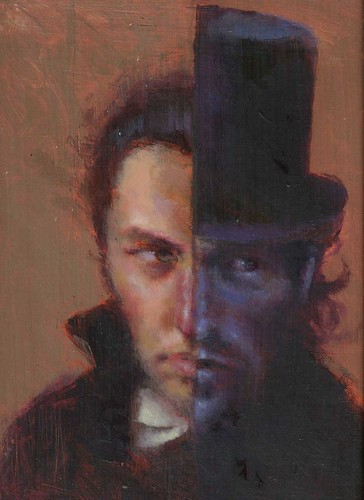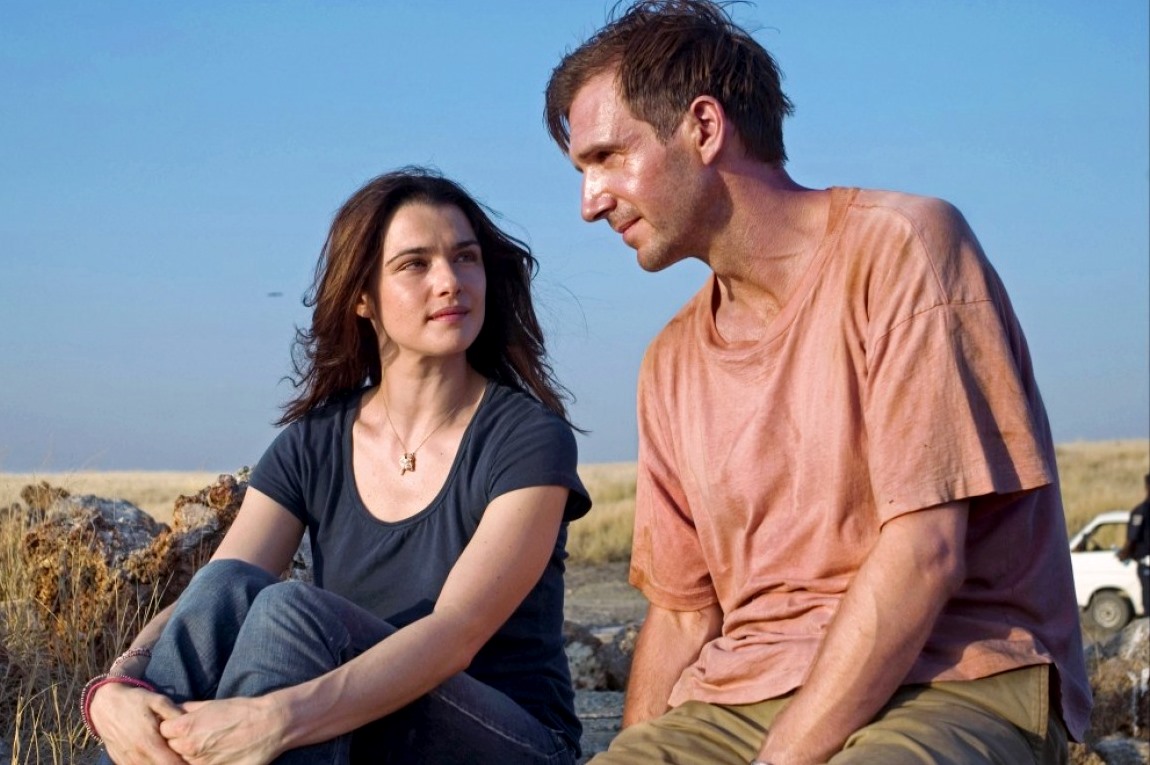There is a point of human despair where the northern poor take to drink − and our own poor take to daggers.
You may enjoy the works of this author for their portraiture, their inimitable style, their flawless moral structure, or, one stormy and brisk late afternoon, perhaps for all three. Indeed, it is this triptych of delights that allow these famous stories − all simple studies with complicated but fair explanations − to render the image of Chesterton and his most prized creation in glory. It is also in the setting that one finds the precise tone. When at home in Chesterton’s England, morals are his strongest suit; when in France, the plot and its concomitant characterizations (like all great writers, Chesterton’s characters shape the storyline, not the other way around) are most dazzling; but away from both these isles of civilization, a sensational style overtakes all else that, while present in all the stories and all of Chesterton’s other texts, is magnificent in its freedom of association, as if the unusual venue stirred his deepest longings. Not many such stories exist, but one gem is undoubtedly this tale set in the land of wine and weal.
 The opening line introduces us to Muscari, the “most original of the Tuscan poets,” a stereotype so true to life that he cannot possibly exist except in literature or a dream. He is cloaked by both nature and habit in black, and carries himself “as near as his century permitted to walking the world like Don Juan, with rapier and guitar.” We already perceive the essence of this frivolous hedonist when another flourish is added:
The opening line introduces us to Muscari, the “most original of the Tuscan poets,” a stereotype so true to life that he cannot possibly exist except in literature or a dream. He is cloaked by both nature and habit in black, and carries himself “as near as his century permitted to walking the world like Don Juan, with rapier and guitar.” We already perceive the essence of this frivolous hedonist when another flourish is added:
He was neither a charlatan nor a child; but a hot, logical Latin who liked a certain thing and was it. His poetry was as straightforward as anyone else’s prose. He desired fame or wine or the beauty of women with a torrid directness inconceivable among the cloudy ideals and cloudy compromises of the north; to vaguer races his intensity smelt of danger or even crime. Like fire or the sea, he was too simple to be trusted.
Muscari is somehow also an “ardent Catholic,” with the emphasis, we suppose, on “ardent.” His ardor leads him, as it always does, to his favorite restaurant where he espies Harrogate, an English banker, and of even greater interest, the latter’s “beautiful English daughter.” As he plans his approach, he catches sight of Ezza, an old friend and failed poet. He chastises his friend, whom he does not recognize owing to his motley garb, for dressing like an Englishman (or, as the latter defends his wardrobe, “an Italian of the future”), and then proceeds to discuss the visiting foreigners. Ezza mentions there is also a son in the picture, to which Muscari replies:
Harrogate has millions in his safes, and I have − the hole in my pocket. But you daren’t say − you can’t say − that he’s cleverer than I, or bolder than I, or even more energetic. He’s not clever; he’s got eyes like blue buttons; he’s not energetic; he moves from chair to chair like a paralytic. He’s a conscientious, kindly old blockhead; but he’s got money simply because he collects money, as a boy collects stamps …. To be clever enough to get all that money, one must be stupid enough to want it.
They are all to venture through a forbidden region, Ezza and Muscari as guides, the Harrogates as moneyed tourists. Only a sixth member to this party is added, a priest, “whose name was Brown and who was fortunately a silent individual,” and they set off.
Now we know that when characters are forbidden for a specific reason from entering a region, walking down a lonely alley, or bathing in an even lonelier cove, what has befallen others will surely befall them. The reason the Harrogates are not encouraged to venture into the Tuscan woods is too good to be real: a king of thieves, extorting fees and fighting off the national troops, resides and reigns among those same wooden columns and uses its animals as lookouts. His brigands appear in all parts and in all forms, and “his wild authority spread with the swiftness of a silent revolution.” When the travelers do alight and confront the inevitable brigand and the “dubious-looking men with carbines and dirty slouch hats” who “had been gathering silently in such preponderating numbers,” their ringleader, a man called Montano, has three demands to make of his rich interlopers. But that little priest, as silent all this time as the revolution or the dubious-looking men, has three objections to this scenario, all of which he explains at length to Muscari. Rare is it that a poet has so listened to a priest! The explanation, given in oblique hints as is typical for this particular priest, has just settled into Muscari’s brain when he looks around, befuddled at the turn of events:
Darkness was deepening under the mountain walls, and it was not easy to discern much of the progress of the struggle, save that tall men were pushing their horses’ muzzles through a clinging crowd of brigands, who seemed more inclined to harass and hustle the invaders than to kill them. It was more like a town crowd preventing the passage of the police than anything the poet had ever pictured as the last stand of the doomed and outlawed men of blood.
In the end, both poet and priest are right about what is important to them. And Muscari is especially right about those southerners and their daggers and those northerners and their potables.
 Sunday, August 10, 2008 at 16:52
Sunday, August 10, 2008 at 16:52  In Paris I shall die and it shall rain,
In Paris I shall die and it shall rain,




